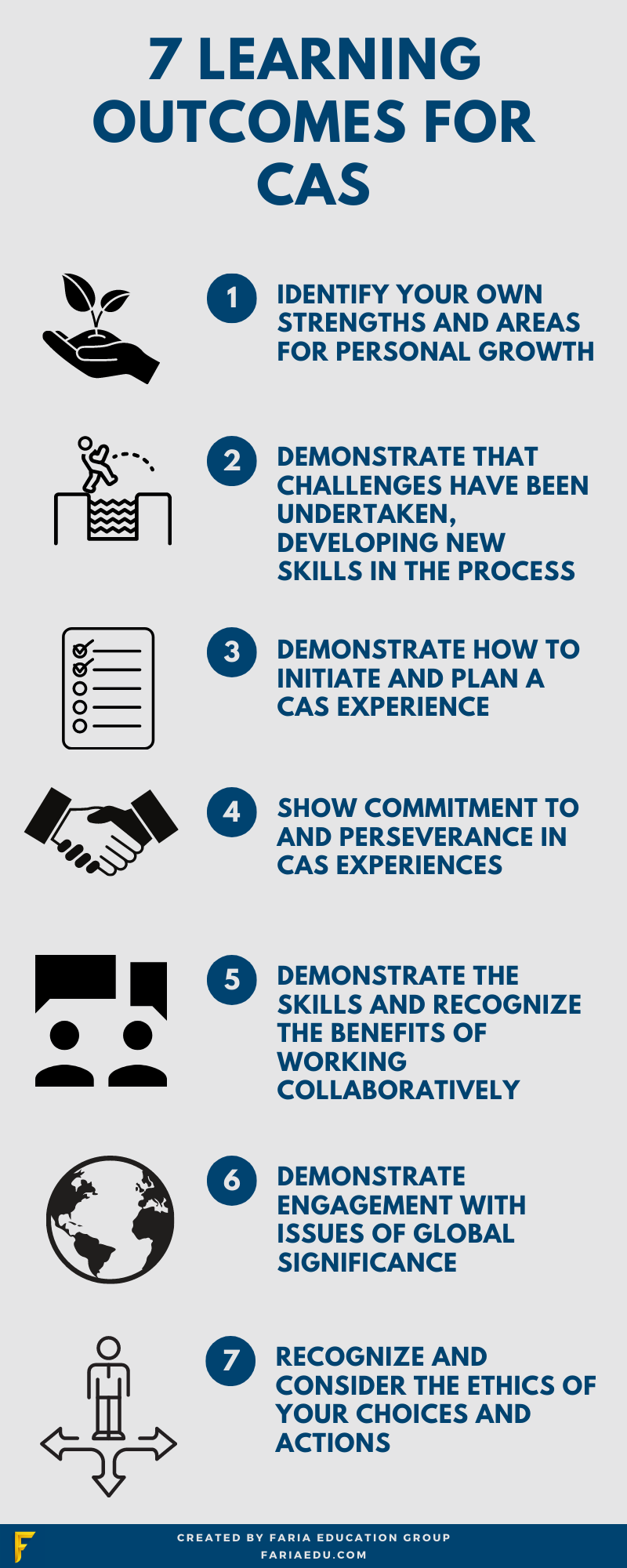What is CAS?
|
|
Creativity, activity and service (CAS) enables students to enhance their personal and interpersonal development as well as their social and civic development, through experiential learning, lending an important counterbalance to the academic rigor of the IB Diploma Program.
All IB students pursuing the full diploma must complete a CAS program which can be documented as early as the first day of junior year and continues throughout senior year for a minimum of 18 months with a reasonable balance between creativity, activity and service. The CAS program includes documented evidence of participation in various experiences and at least one CAS project. Completion of the program is determined by fulfilling the criteria above and demonstrating growth through the seven learning outcomes. |

